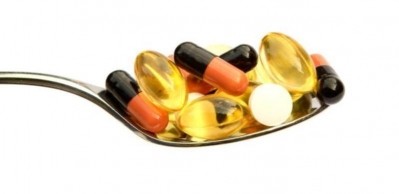Special edition: Asia
India’s nutrition boom produces contract research boon

In the third part of our special series on the food and beverage markets in Asia, we look at how Indian CROs are helping the country’s booming nutrition sector build the science to support claims at home and abroad.
Health and wellness has been hailed as a sea-change in the global food industry – markets for ‘functional foods’ and dietary supplements are booming across the planet. The claims attached to such products, however, are coming under scrutiny of increasing intensity from regulators dedicated to protecting the public from scientifically unsubstantiated claims.
This has led to a boon for contract research organizations (CROs) around the world as companies seek to build the science to support the efficacy and safety of their ingredients and products.
The US already has CROs with expertise in the testing of nutraceuticals, with companies such as AIBMR Life Sciences, NIS Labs, Chromadex, and Covance recognizable names in that market. In Europe, CROs like Berlin-based Analyze&Realize have built up strong reputations.
According to Shaheen Majeed, marketing director for ingredients supplier Sabinsa, “With tightening regulations, especially in Europe, most CROs around the world as well as in India have started targeting the nutraceutical market and are eager to serve if the world is ready to listen.
“The drying pharma pipeline is reason enough for at least some CROs to serve the special interests of the nutraceutical industry,” he added.
“India is set to become a big player in this industry with its highly developed system of clinical documentation and scientific basis to support claims of safety and efficacy,” said Majeed.
Experience in pharma applied to nutra
Nutraceutical testing is also gaining a strong foothold in India after establishing its credentials in the pharmaceutical sector. Indeed, a recent report by Ernst & Young and the Organization of Pharmaceutical Producers of India (Oppi) put India’s outsourcing sector growth at 43 percent. The report covers these end-to-end services under the term contract research and manufacturing services (CRAMS).
Overall CRAMS in India has a compound annual growth rate (CAGR) of 51 percent, according to the report, and this will result in it generating revenues of $3.8bn (€2.7bn) and capturing 5.5 percent of the market in 2010.
Ajoy Kumar, MD, CEO of one such CRO – Max Neeman – explained that three years ago they were not conducting any trials with nutraceuticals. Earlier this year, the company created an exclusive team to conduct studies on nutraceuticals, and has reportedly already conducted trials in the areas of pediatric dietary supplements and omega 3 fatty acids.
In 2010, 10 percent of the trials are nutraceutical-related, said Dr Kumar, and this is expected to increase to 15-20 percent next year.
Talking to NutraIngredients-USA, Sabinsa’s Majeed explained that there are currently no guidelines for clinical research in the nutraceutical segment in India. “There are a number of initiatives taken by the government of India in the formation of a body comprising of individuals from diverse backgrounds, which has been working on separate guidelines for nutraceuticals. With the Indian regulatory body becoming more stringent trials would be conducted in a much organized way in the future.”
“Companies such as Sabinsa have succeeded with their nutraceuticals because they have developed the required clinical documentation and have done clinical studies in many countries as well as in India, thus developing credibility,” he said.
Understanding the growth
“India is one of the fastest growing markets [for clinical trials] because of world class CROs, R&D facilities, qualified human resources and varied raw materials,” said Majeed. “In India, the clinical nutraceutical study teams consist of specialized and experienced endocrinologists, nutritionists and dietitians with sound experience in executing such studies. These efficient groups are structured well to serve the special interests of the nutraceutical industry.”
The growing interest in nutraceuticals reflects the change in perspective amongst the growing middle classes in India, said Dr Kumar. “Indians are much more health conscious and they have higher disposable incomes.”
“The health care industry is booming in India, mirroring the EU and US,” said Dr Kumar. “Physicians are recommending nutraceuticals [to patients] and being taught about them in medical schools.”
Nutraceuticals are indeed growing fast: According to a report released by Netscribes (India) Pvt. Ltd, the total market for nutraceuticals in India is growing at 21 percent per annum. It is currently valued at INR 44bn (€621m), but could be worth more than INR 95bn (€1.34bn) in four years time.
But it is not just the domestic Indian market that is driving the boom. Dr Kumar confirmed that his clients include companies from across the globe.
So why are companies looking to India? Every country has its own advantages and disadvantages, said Dr Kumar, but an obvious advantage for India is its sheer size. “We have a huge number of patients, a huge number of hospitals, and a huge number of doctors all taught the same as in the EU and US. Companies can be comfortable with India because the science is identical,” he said.
In addition to the above advantages, Sabinsa’s Majeed noted that speed is also an attractive aspect of clinical trials in India: “Rapid patient recruitment, which significantly reduces the clinical development process as subject recruitment is the most common rate-limiting step in the drug development process. India offers sponsors the opportunity to recruit subjects quickly while maintaining a high level of quality. The relative cost savings result not only from shorter timelines but also from the low cost of performing studies in India…: Drug companies can save 30-50 percent by conducting trials in India as compared to the West,” he added.
Majeed also noted that data generated in India is accepted by all major conferences and journals. “In 1995 the Indian government as part of the WTO agreed to adhere to the product patent regime by 2005. Being a member of the GATT, India will have a process and product patent that will be consistent with the patent laws prevailing in the developed countries,” he said.
For the other parts of this special series, please use the links below.







